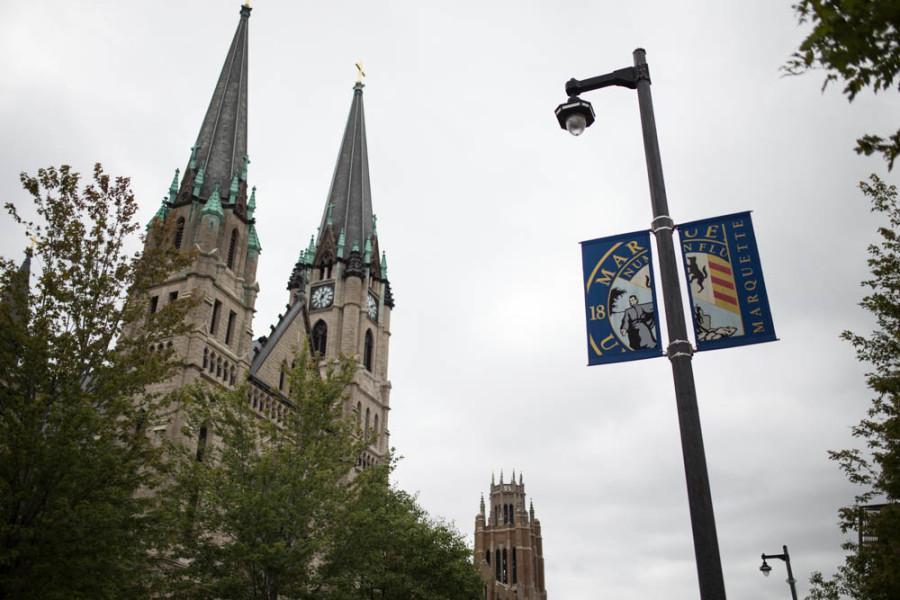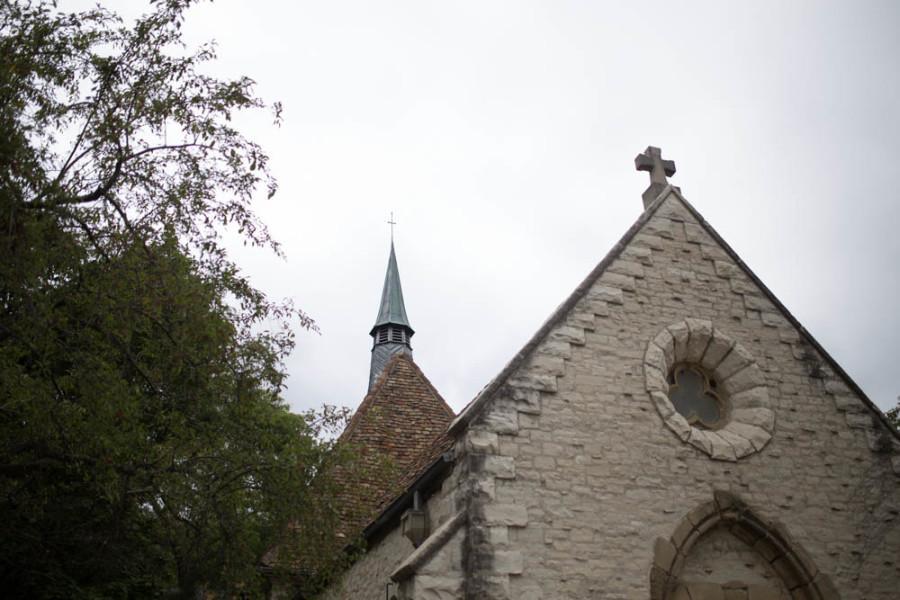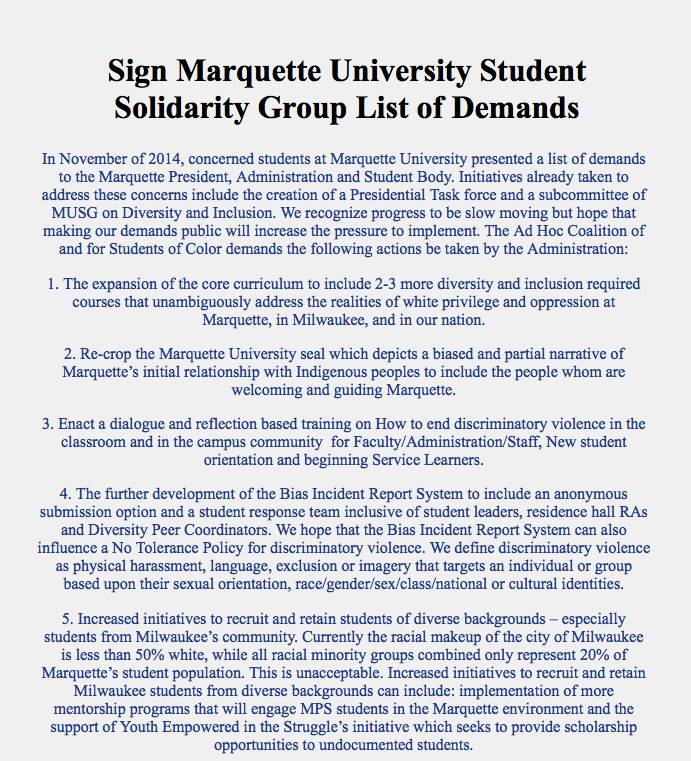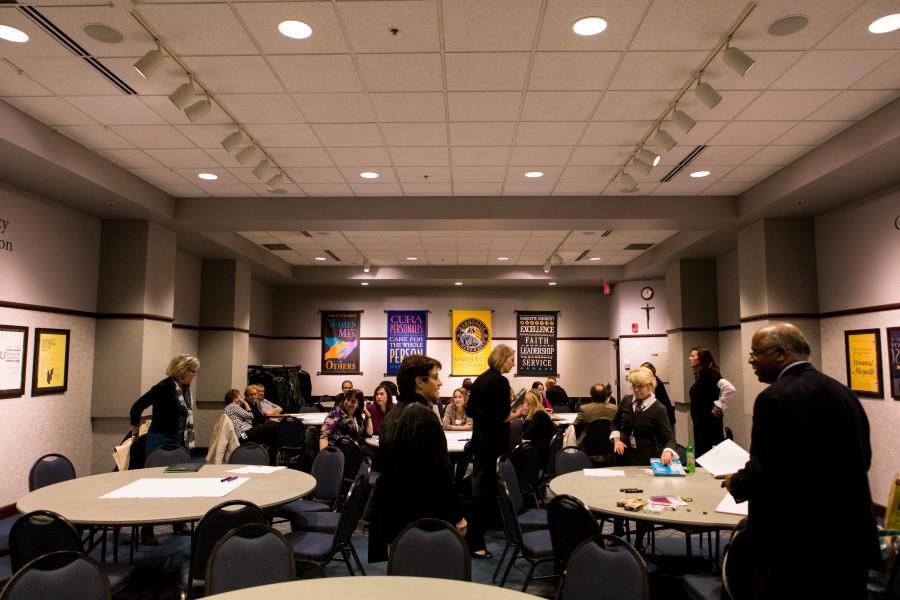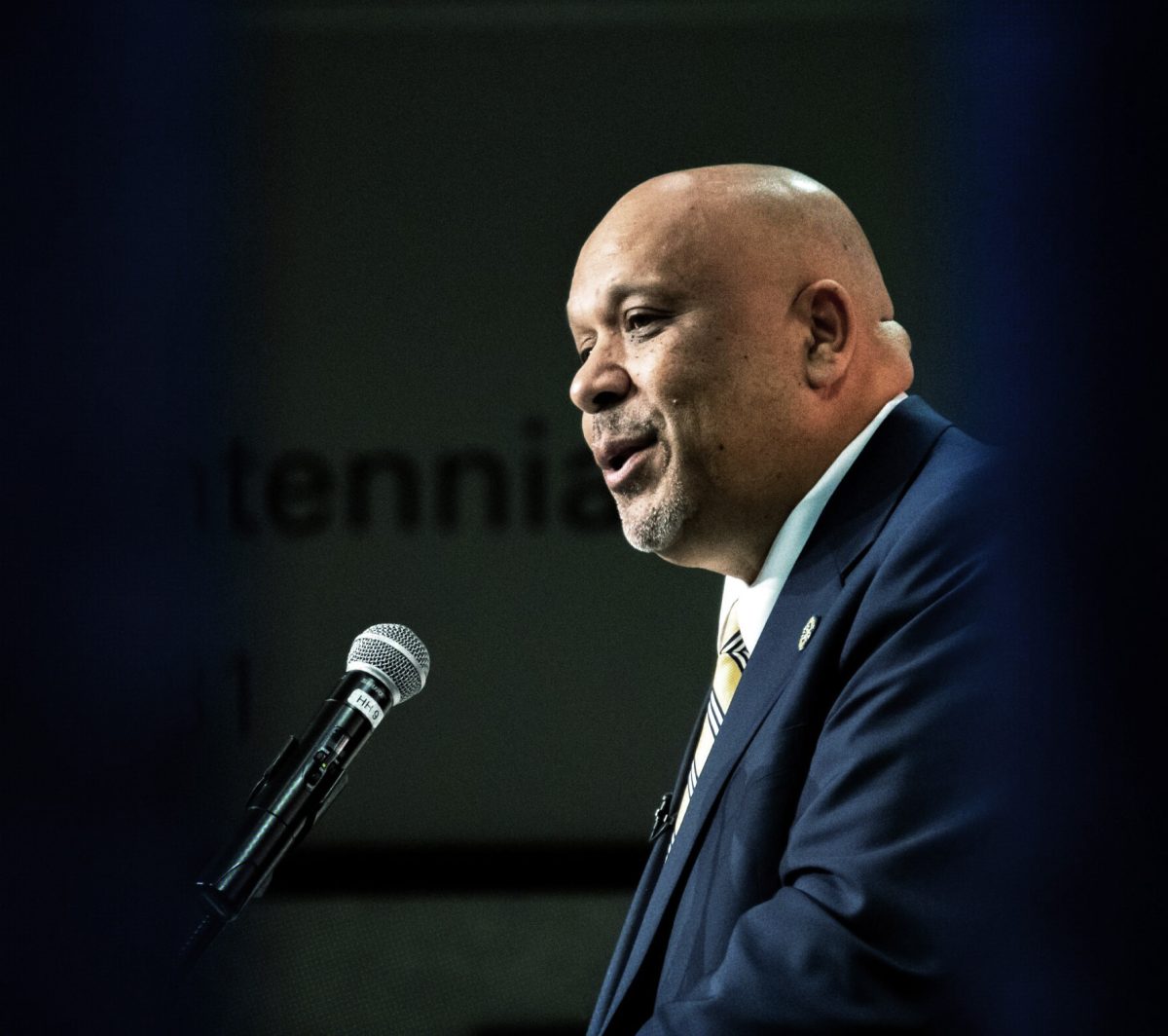Students now have the option to join a network of 158 diversity advocates at Marquette by attending two training sessions next month.
The university’s diversity advocate training began in 2007 to teach faculty and staff about raising awareness on diversity issues. The curriculum changed last year from a two-hour orientation to two five-hour sessions each.
Diversity Coordinator Angela Zapata said a diversity advocate is an individual dedicated to creating a truly inclusive campus community.
The university and Marquette Student Government have emphasized diversity and inclusion this semester, especially after the campus climate study revealed minority students’ experiences with discrimination. Opening up the diversity advocate training to students is another effort toward having a more inclusive campus.
“Action is when the university addresses issues in a very productive way and I feel that we’ve been doing that,” said Joshua Miles, coordinator of MUSG’s Diversity, Inclusion and Social Justice Committee and a sophomore in the College of Communication.
The training focuses on topics including self-awareness, social identities and privilege through group discussions and activities.
Zapata said the program also teaches “vital” advocacy skills, like “how to confront stereotypes, bias and micro-aggressions in a way that’s not going to raise defenses but instead engage dialogue and discussion.”
Zapata said she has seen a lot of interest in the program since last year, especially from minority students.
“I think that people want to be part of a network of other people here who are devoted to creating a really effective and sustainable change,” she said.
Miles said he is excited about the training.
“We want students to be challenged and we want them to know that the world isn’t an easy place,” he said. “It will allow students to have a game plan when they facilitate conversations about diversity.”
Zapata said she is looking forward to creating a mentorship between students and faculty that receive the training.
“We want to really create more support,” Zapata said. “That mentorship can really be helpful for creating self-care and boundaries so that students aren’t burning out.”
The mentorship teaches how to balance advocacy and personal life, especially when diversity issues occur daily.
After the training, the diversity advocates sign a commitment statement to claim their titles. The statement requires advocates to seek opportunities outside their comfort zone that entail self-education, community engagement and promoting an inclusive campus environment.
“The training is meant to be a beginning place,” Zapata said. “This is a lifelong learning process.”

